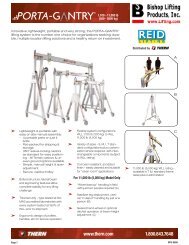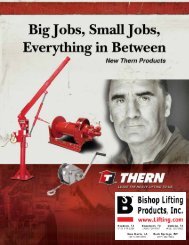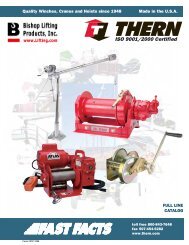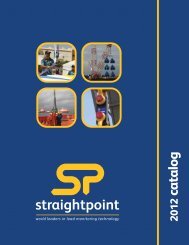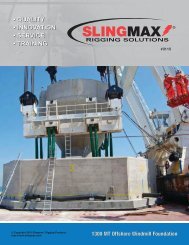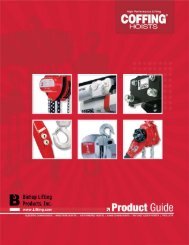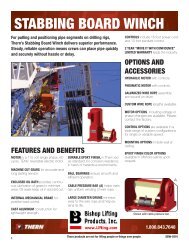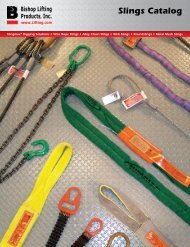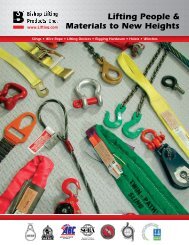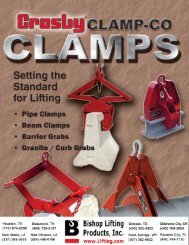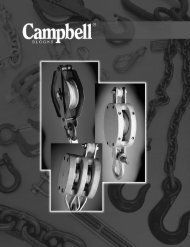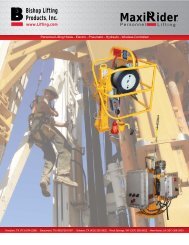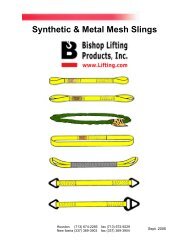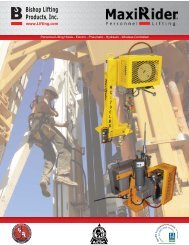warning - Bishop Lifting Products, Inc.
warning - Bishop Lifting Products, Inc.
warning - Bishop Lifting Products, Inc.
You also want an ePaper? Increase the reach of your titles
YUMPU automatically turns print PDFs into web optimized ePapers that Google loves.
Web Slings<br />
How to Order<br />
How to Order Synthetic Web Slings<br />
and Technical Information<br />
Determine the material the sling will be made from (nylon or polyester) based upon the environmental conditions to which it will<br />
be subjected<br />
Nylon<br />
Polyester<br />
Acid NO *<br />
Alcohol NO OK<br />
Aldehydes OK NO<br />
Strong Alkalies ** **<br />
Bleaching Agents NO OK<br />
Dry Cleaning Solvents OK OK<br />
Ethers OK NO<br />
Halogenated Hydrocarbons OK OK<br />
Hydrocarbons OK OK<br />
Keytones OK OK<br />
Oil, Crude OK OK<br />
Oil, Lubricating OK OK<br />
Soaps, Detergents OK OK<br />
Water, Seawater OK OK<br />
Weak Alkalies OK OK<br />
* Disintegrated by concentrated acid<br />
** Degraded by strong alkalies at elevated temperatures<br />
WEB SLINGS<br />
Web Elasticity –Stretch characteristics of web slings varies<br />
Nylon: 6-10%<br />
Polyester: 3-7%<br />
Roundslings Elasticity – Stretch characteristics of roundslings varies.<br />
Polyester: 3-5%<br />
K-Spec: 1%<br />
Operating Temperatures – Never exceed the temperatures listed below<br />
Nylon: above 194°F (90°C) or below -40°F(-40°C)<br />
Polyester: above 194°F (90°C) or below -40°F(-40°C)<br />
K-Spec: above 180°F (82°C) or below -40°F(-40°C)<br />
Proof Testing – All synthetic slings when required shall be proof tested to 2 times of the Rated Vertical Capacity as described in ASME<br />
B30.9. Slings shall be tested on a calibrated testing machine as described in ASME E-4<br />
Web Slings 114<br />
(800) 972-1041



